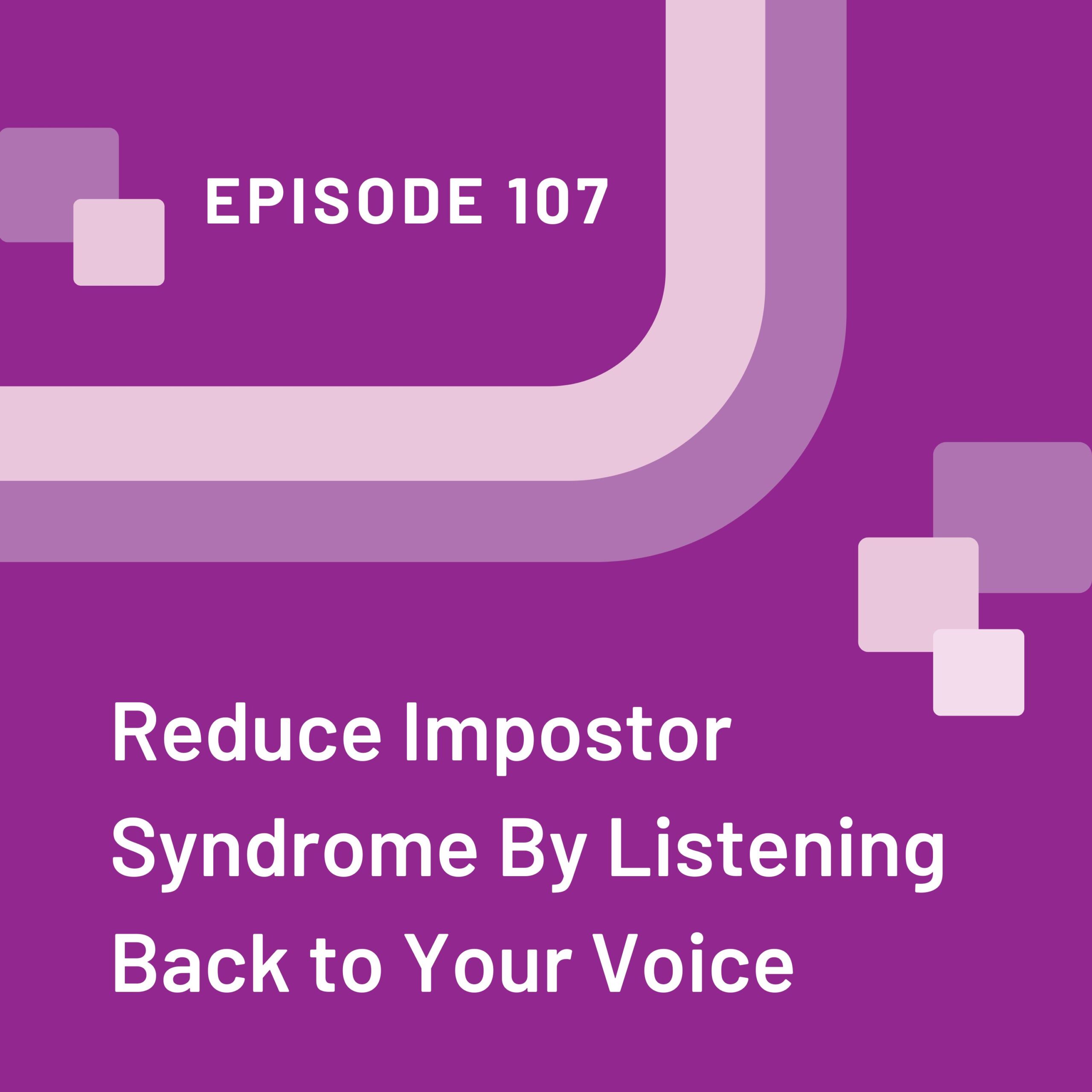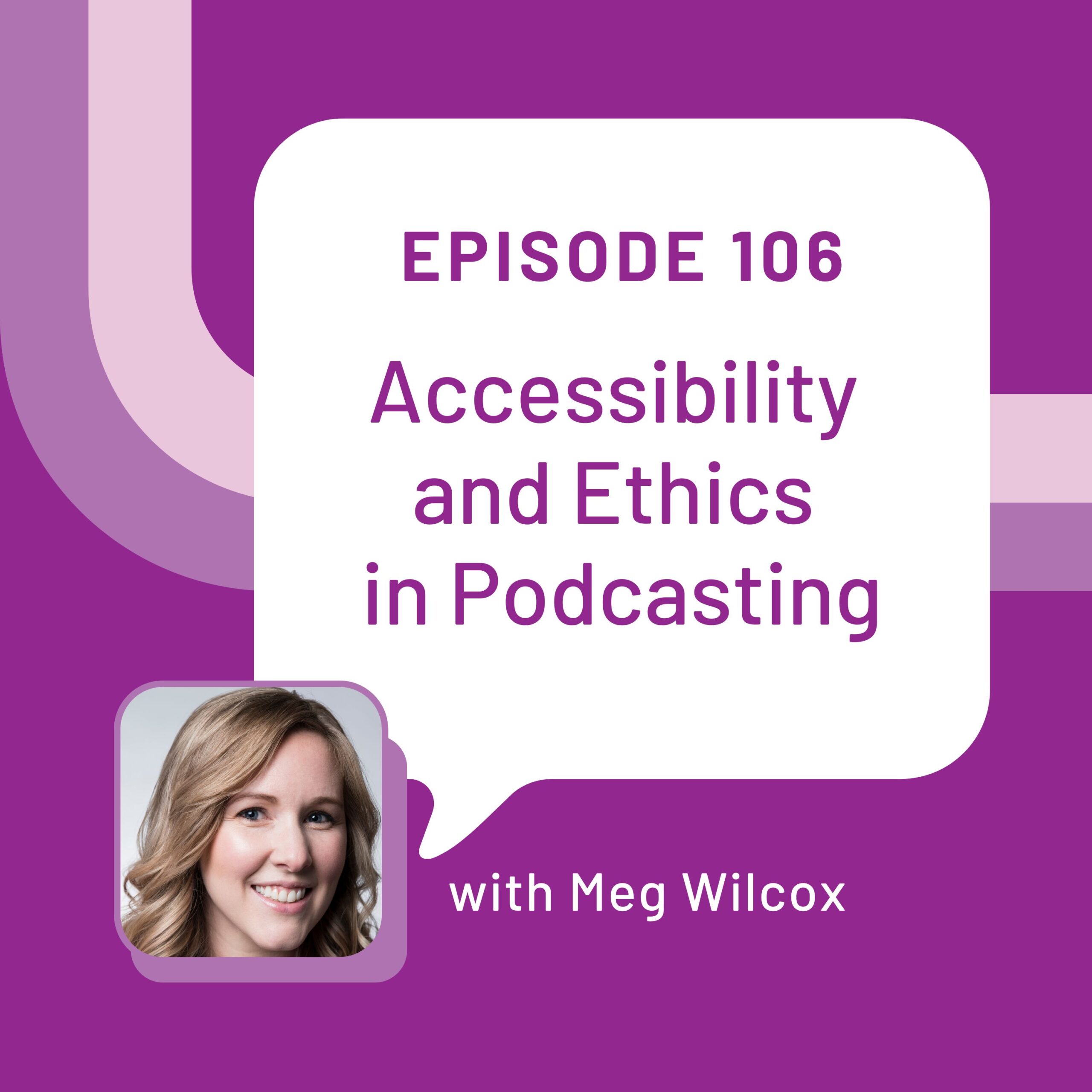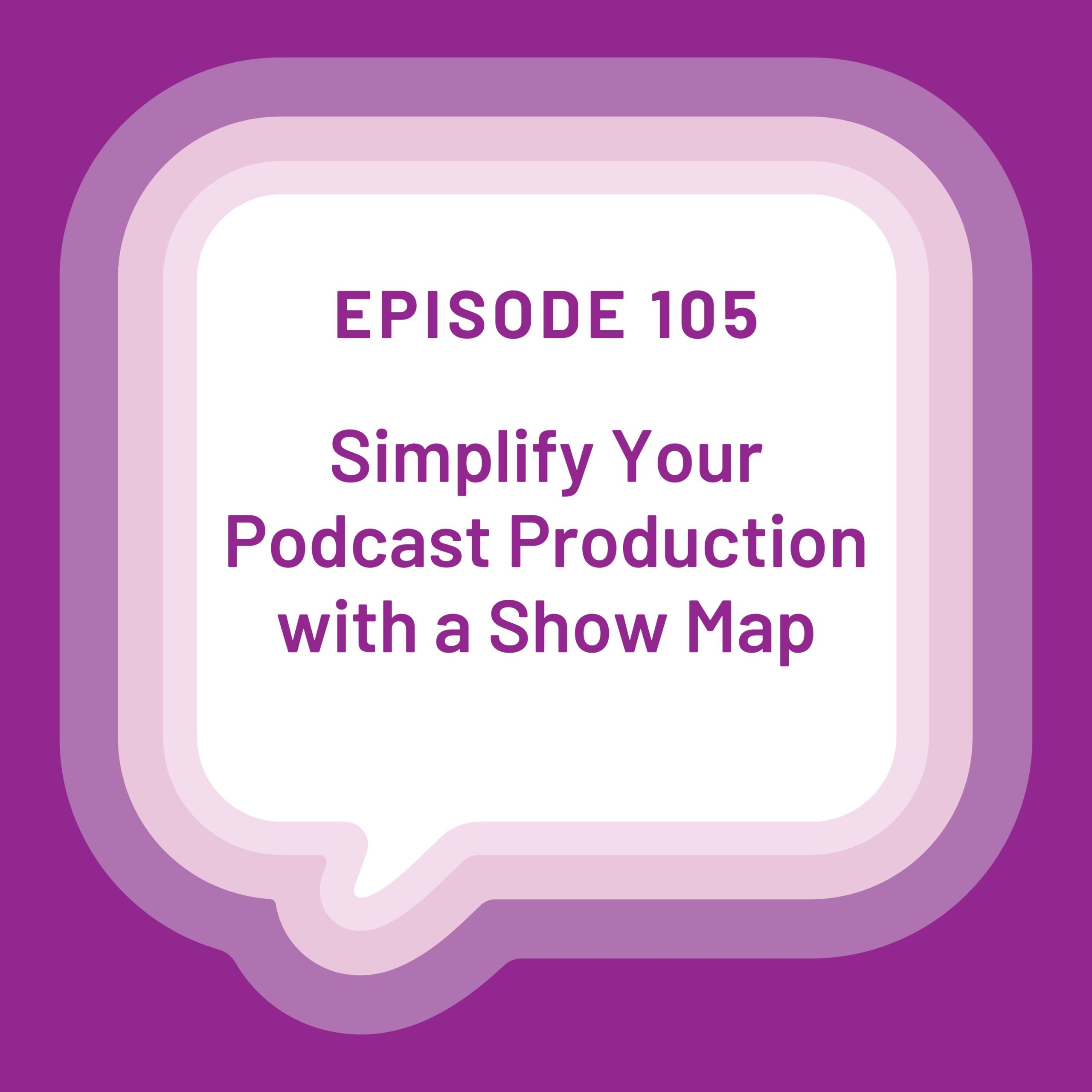Here we are, the end of 2021. This actually is going to be my last episode before the end of the year, so I’ll be back in 2022. But that brings me back to what I love doing at the end of the year. Resting. I know we’ve had a long year, a long second year into a pandemic, and I want to say, yes, you deserve that break. But also during this time of rest, from your day-to-day, hopefully, you have time away from your podcast. It’s not just a time to rest and not think about your podcast, but a time to reflect and to celebrate. I don’t think we talk about that enough.
We need to celebrate our accomplishments, and the only way we can do that is take a break. Rest, relax and look back on what we did, because sometimes it doesn’t have to be big milestones. I’m talking about anything that you see in your eyes as a success, not what somebody else thinks, what you think your success has been for your podcast. And as I have said many, many times before, each podcast is so different and unique because you are the only one with your voice, so no other show can compare. You might have similar audiences. You might even have a similar name to your podcast, but know each show is unique with you behind the mic. So what are you celebrating with your podcast from the past year? I love taking this time to review and rest because we do all this work for our podcast and not because it’s work, work, and it’s something that we have to do that could make us drained from all this energy and think, oh I’m so glad that episode has been released and that we’re tired, but because we’ve accomplished something. And so what is that meaning for you? Perhaps you could ask yourself how many people reached out to you, whether it be in an email, social media. What was that connection that you made? Were there any new connections? Did you hear from new listeners? Were there any outlying connections that happened because of your show? Outlying meaning there’s no direct correlation with someone saying, oh I heard your show, so I had to contact you. But maybe more of: they heard about you, maybe they had been listening for a while, and now they have finally made a purchase for your business or a course or something that is related to your podcast. Sometimes the connections are not as concrete. There could have been someone who recommended you because they knew you and they found your podcast, but the main referral was the person who recommended you. But your podcast, that’s where your brand awareness comes in. Podcasting, like radio being a medium of audio, uses repetition to create brand awareness. So when they found your podcast, you know, they didn’t just listen to one episode. They probably listened to multiple episodes or little bits of multiple episodes to hear what you’re really like. Your brand and voice need to be heard multiple times in order for it to be a success. And that’s how radio works, and it’s very much the same in podcasting. There aren’t new episodes for listeners to consume, and then they draw on this repetition to remember who you are. And maybe for this particular person, I was mentioning, perhaps they got that referral for you, discovered your podcast, and listened to a couple of episodes, maybe they’re hooked. So they subscribe and they listen for new episodes that you publish. It is that repetition that makes you memorable.
For example, you probably don’t need a mattress like right now, this very second as you’re listening to me talk about a new mattress. And that goes the same for when you hear an ad on a podcast, on the radio, wherever about a mattress. But because you’ve probably heard this ad multiple times, you’ll think of that mattress brand when you’ve had, say, a really bad night’s sleep and you think it’s time to buy a new mattress. And you’re like, oh yeah, there is this commercial I heard for this mattress, I’m going to check it out. Same for podcasting. You can talk about a course or membership you have on your podcast, but talking about it once won’t have listeners buy in right away. They need to hear the repetition and have it catch at the right moment when they need it. So this is where lead-time needs to come in. Planning is key. Because we can’t predict when someone needs that new mattress. Right? Let’s plan and have some execution ready for 2022. This is why planning matters. I started most of my plans for 2022, just thinking about it and coming up with ideas back in September but there’s definitely still time. Just because January 1st is the new year, it is a human-created invention, so it doesn’t really matter when you plan as long as you do so. This also reminds me of episode ten of the podcast. If you go back to that one, it’s Honour Yourself Because September is the New January. Go back and listen to episode ten. It’ll walk you through what podcasting success may look like for you.
Create Objectives, Not Goals
Now, I know sometimes it’s not easy to plan. How can we plan and predict the future? Predict when someone’s going to buy that mattress, right? It’s not about detailed goals specifically, but objectives. I remember being in school and being a young person in radio. My boss would always say to me, what are your goals? We had to do those five-year plans, the long-term plans, and we were like, I don’t want to do career goals. I don’t know! Things can change so much, especially now. You know, we’ve had so many recessions. We’ve had the pandemic. Oh, it can feel very overwhelming. I know it was for me. Goals, to me, sound like you can be disappointed as well, especially if you don’t achieve the goal. However, in my mind, objectives are the steps and strategies that you take to achieve those goals. So there are things that can take a meandering route or is a bit more flexible. So I don’t feel so devastated or upset that I didn’t achieve my goals. In the best-case scenario, think about it. What would you like to happen? What is your overall goal? But more specifically, what are the objectives that will take you there? If you focus on the objectives, you’ll have less of that overwhelm from the focus on the goal. So for objectives, perhaps if there are seasonal things or topical items in your specific industry that could use some highlighting. Perhaps an episode before that date would be in order. You can start brainstorming about what you’d like to talk about around this topic or event and even who you could chat with if you have an interview-style show.
Allow for Flexibility
Next, allow for flexibility. Podcasting comes with tech headaches. You know it. You’ve been there. So have I. And I’m pretty tech-savvy, too, but it happens to the best of us. You can have the best-laid plans, but sometimes the computer or the internet just doesn’t want to play nicely. If you don’t have a backup plan, start thinking of some. What is the main way that you record your show? How do you make that happen? If it’s with a guest, what is another way to record your episode as a backup in case the main recording fails? You know, that has happened a couple of times. Because it will happen to you once or twice as a podcaster. That recording is going to fail. So think about that. Have you allowed enough time when scheduling your interviews that if they cancel at the last minute or you don’t have a connection to the internet, do you have to scramble to find a new interviewee to fill your last-minute schedule?
Create a New Habit for Yourself
So that brings me to my next topic to create a new habit for yourself. Have you been doing weekly shows or biweekly, whatever your schedule is, but you haven’t started batch recordings yet? Now, if you don’t have a daily show or news-type show where everything has to be very topical, this might be the solution for you. Take a look at how you can make batch recordings happen, especially if you are doing everything yourself. You are the host. You are the creator. You schedule your podcast. You do all the social media. That is a lot of work and all the other things that come along with your podcast – scheduling guests, writing out the emails, et cetera, et cetera, et cetera. Batch recording might be a good workflow for you. So think about your podcast like a line of factory workers, but you are the only worker or you have a small team to assist with you. So there’s a couple of people on this factory line. If you can schedule a day or a week at a time to do a bunch of interviews. You’ll have them in the bank. You are the worker on that particular factory line. The next part of the line is maybe the recording of your intros and outros or the editing of those interviews. Spend a good day or have time during the week to edit all those interviews or recordings that you’ve done. And finally, as the last part of the factory line, this is the publishing and distribution. Create a workflow so that once the MP3 or the final episode is created, you can spend a day scheduling all those different episodes or doing the social media or creating blog posts. This idea of batching could alleviate those weekly tasks that come up every single week, and it feels like you’re just this mouse on a wheel doing the same thing over and over and over again. It could be for you. It could be for your team members. We could feel the crush of a go, go, go on a weekly basis if you have, say, like a weekly show. So if you start batching, you’ll always have something in the back pocket and move an episode around if something more timely or urgent comes up. Like I was saying before, if that guest decides to cancel at the last minute or you’ve lost your internet connection, you’ve got a backup. Now that you are the creator, you have some systems in place, so don’t be the critic.
Review What You’ve Done
This is the other half of the rest and relaxation and celebration for the end of the year. So, yes, review what you’ve done. So actually go back and listen to some past episodes. That’s right. Listen to your episodes. Not because you’re listening because you have to edit the show or you’re writing up show notes. No, review and listen like you’re an actual listener. But think about it this way, that you are the creator and you are not a critic of your own show. And even if you were, be gentle with yourself, have some empathy and review your episodes as if you were a friend. Not like you were the writer for an online article criticizing all aspects and breaking down each episode into its tiny parts. No. When you’re listening to review, what would a friend say to you about your show? Use that empathy to review and then tweak and adapt what you need to grow your show and make those changes. When you review your show, not like a critic, you are not seeing all those imperfections.
I am a huge knitting nerd. I love making my own clothes, and I saw this a lot in my knitting circle. We would always be the critics, seeing all our handmade mistakes and pointing them out. So someone would say, oh that’s a beautiful sweater you’re knitting. And me, the knitter, would say, oh, I’d start picking everything apart about what I did wrong, like how the yarn broke in the middle of the knitting and I had to patch that up or how the colours were just slightly different and the dye lots changed. I don’t think anybody noticed that until I pointed it out. No. When you’ve created an episode, what did you like about it? Not what was wrong with it. What went well? What was a celebratory moment? Take that in, first. That’s what a friend would say to you, not what a critic would say. So be the creator. Create your podcast. Batch episodes if you can and not be the critic. Let things be. Create, look back. Learn and let go. You can’t nit-pick all the things that went wrong, but use that knowledge to your advantage by adapting and tweaking for your next creation. Your next episode. So enjoy the break. As I said at the top of the show, I will be celebrating and resting. I’ll be off through to January 2022. That leads to Chinese New Year, which is my winter tradition, so I will chat with you in February. Enjoy the time off.



